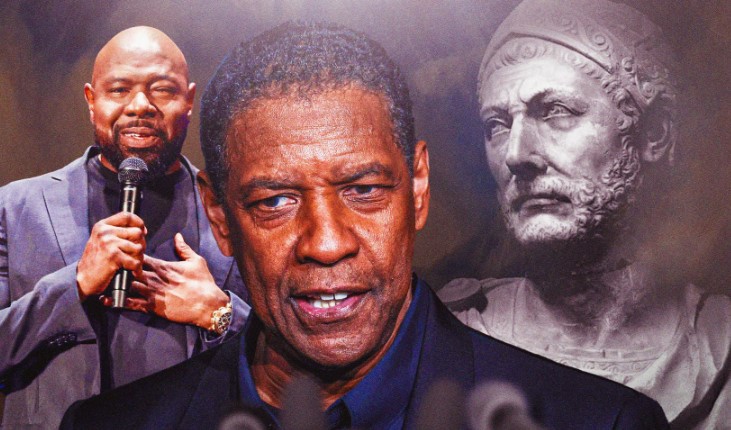The casting of Denzel Washington as the legendary Carthaginian general Hannibal in the upcoming Netflix film directed by Antoine Fuqua is generating controversy in Tunisia, the legendary military commander’s birthplace.
As reported by the French newspaper Courrier International, the media and the Tunisian parliament are receiving criticisms regarding the portrayal of the Carthaginian general as a Black African. Yassine Mami, a member of parliament, has noted that Hannibal, who was born in Carthage, Tunis, the capital of Tunisia, in 247 BC, was of West Asian Semitic descent. “We must take a stance on this matter; otherwise, we run the risk of falsifying history,” the Tunisian politician allegedly said.
Simultaneously, an editorial in the French-language Tunisian publication La Presse raises the same objection, stating that the portrayal of Hannibal as a Black African is “a historical error in the eyes of Tunisians and many observers.”
In contrast, the pragmatic perspective of Hayet Ketat-Guermazi, the minister of culture for Tunisia, was more divergent.
“It is work of fiction.” She responded, “Netflix has every right to do as it pleases,” as reported by the French newspaper Le Monde. “Hannibal is a historical figure whose Tunisian heritage we all hold in high regard. However, what are our options?” She further stated that she is in the process of negotiating with Netflix to have a portion of the film shot in Tunisia. “I hope they make the decision to film a minimum of one sequence of the film here and that word gets out about this.” “We want Tunisia to once again serve as a filming location for foreign productions,” Ketat-Guermazi stated, as cited by Le Monde.
Fuqua, Netflix, and Washington representatives did not respond to a request for comment at this time.
A parallel can be drawn between the controversy in Tunisia surrounding Washington’s portrayal of Hannibal and the outrage that erupted in Egypt in April regarding Adele James, a British actress of mixed heritage, who portrayed Cleopatra in the Netflix documentary “Queen Cleopatra.” Born in the Egyptian metropolis of Alexandria in 69 BC, the first-century Egyptian queen belonged to a Greek-speaking dynasty. Academics in Egypt went into a frenzy over the distinction between Cleopatra and Cleopatra Black and European descent.
Writing the untitled feature about the Carthaginian general will be John Logan, the three-time Academy Award-winning screenwriter who penned “The Aviator” and “Gladiator” for Martin Scorsese and Ridley Scott, respectively.
As per the official synopsis, the film is “inspired by the legendary warrior Hannibal, who is universally recognized as one of the preeminent military strategists of all time.” His decisive engagements against the Roman Republic throughout the Second Punic War are chronicled in the film.
Hannibal invaded Italy atop a military elephant from Northern Africa. Critical Carthaginian victories over the Romans during his reign enabled Hannibal to conquer a significant portion of southern Italy for a period of fifteen years. The Romans ultimately prevailed over Hannibal at the Battle of Zama, subsequent to their counter-invasion of North Africa.
Washington reprised his role as ex-marine Robert McCall in the action thriller “The Equalizer 3,” which Fuqua most recently directed.
The upcoming sequel to Ridley Scott’s “Gladiator,” on which Washington is presently working, has resumed filming in Malta following a production halt caused by the SAG-AFTRA strike.





